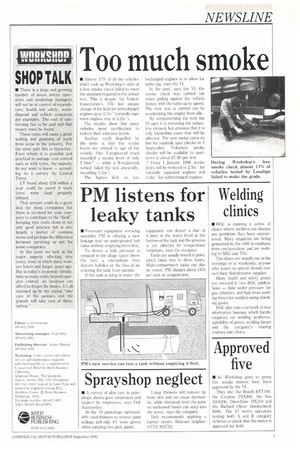SHOP TALK
Page 79

If you've noticed an error in this article please click here to report it so we can fix it.
• There is a large and growing number of areas where operators and workshop managers will not be in control of expenditure: health and safety, waste disposal and vehicle emissions are examples. The cost of conforming has to be paid and that money must be found.
'these costs will cause a great wailing and gnashing of teeth from some in the industry. For the most part this is hypocrisy. Even where it is possible and practical to manage cost control such as with tyres. the majority do not want to know — according to a survey by Central Tyres.
CT found about ..E28 million a year could be saved if truck tyres were kept properly inflated.
That amount could do a great deal for most companies but there is no need for your company to contribute to the -fund". Keeping tyre costs down is not only good practice but is also largely a matter of common sense and perhaps the difference between surviving or not for some companies.
In this issue we look at the major aspects affecting tyre costs, most of which many readers learnt and forgot years ago. But in today's economic climate, with so many costs beyond operator control, no business can afford to forget the basics. It's all summed up by the saying "take care of the pennies and the pounds will take care of themselves,"




































































































